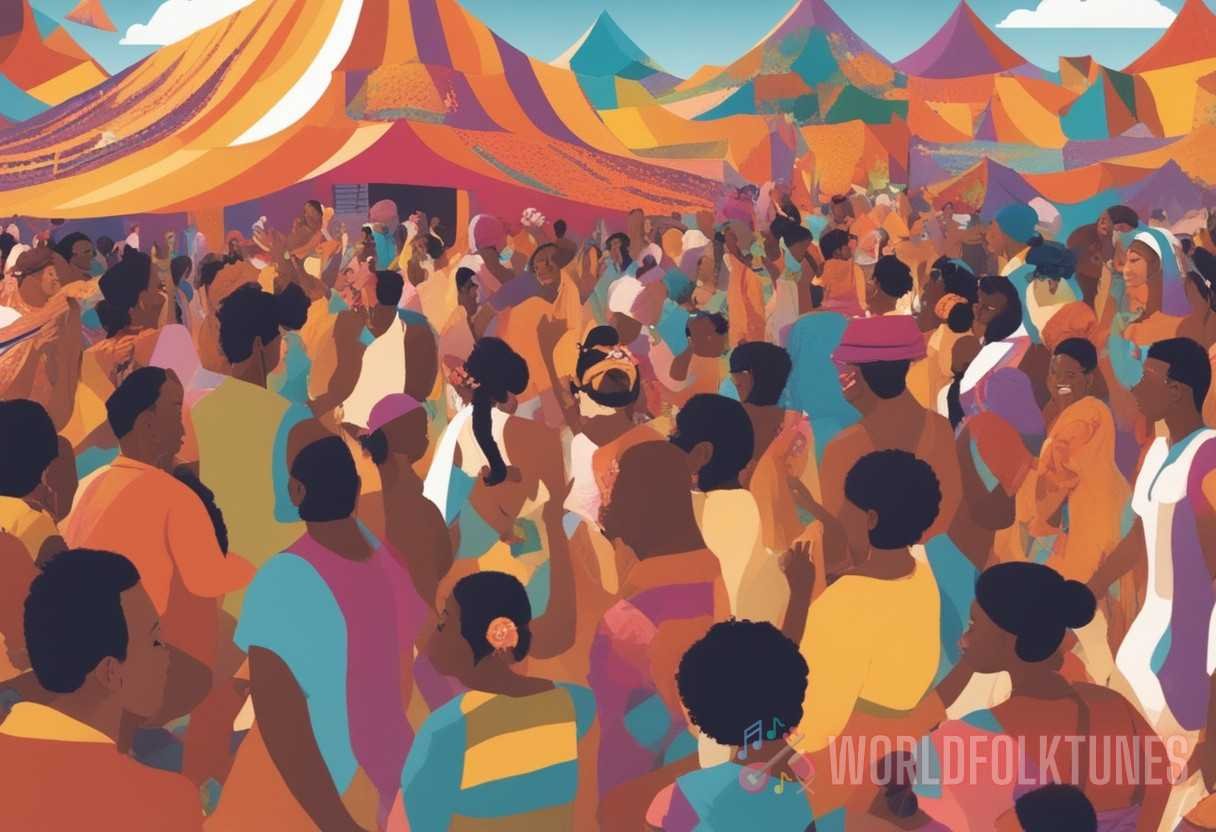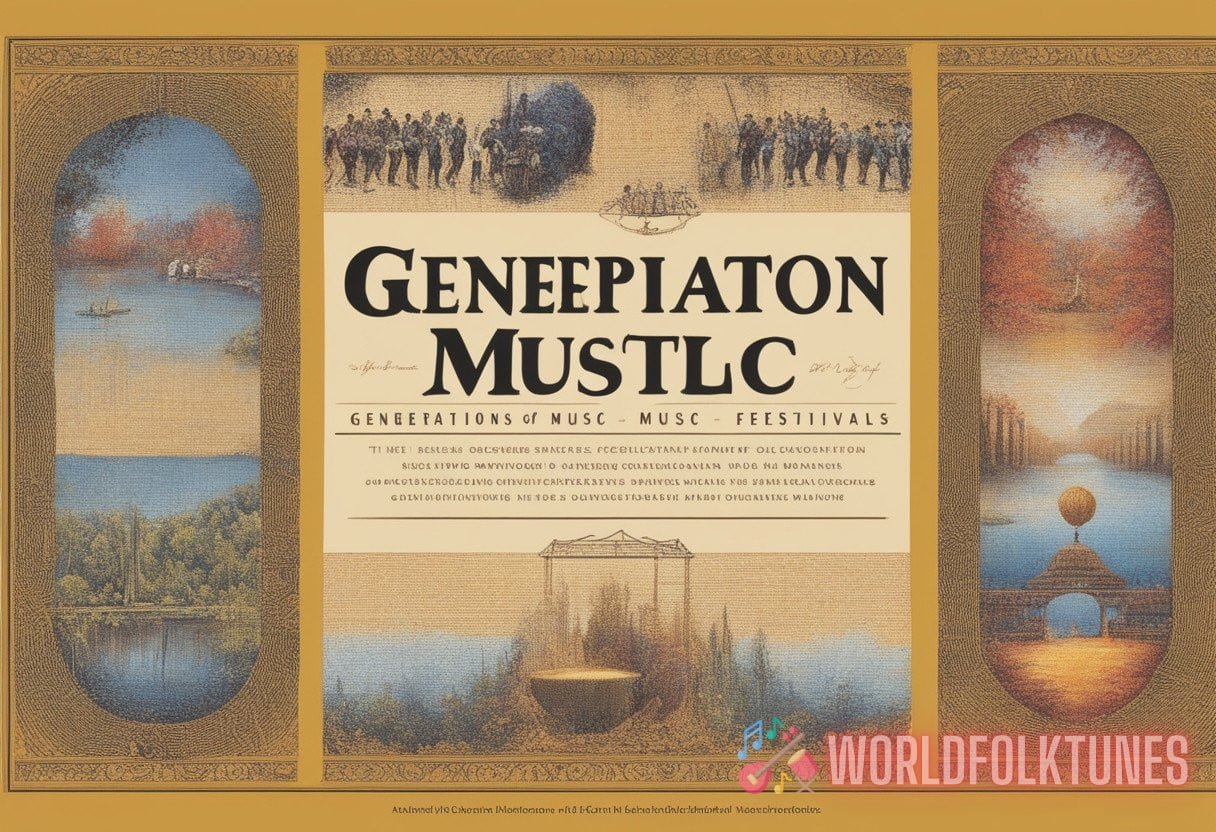Introduction
Music is a universal language that transcends borders, connects people, and bridges cultural divides. At global festivals, the unifying power of music becomes particularly apparent as individuals from diverse backgrounds come together to celebrate their shared love for melody, rhythm, and performance.
The Historical Context of Music and Cultural Exchange
Throughout history, music has served as a vital conduit for cultural exchange and communication. From ancient trade routes where merchants carried melodic traditions across continents, to the modern digital age where songs can reach global audiences instantly, music’s capacity to bridge cultural divides has been well documented.
- Silk Road: Musical traditions from Asia and Europe intersected, leading to the creation of hybrid genres.
- Atlantic Slave Trade: Enslaved Africans brought their musical heritage to the Americas, profoundly influencing Western music.
- Colonial Era: European colonization spread Western musical styles globally, while also incorporating indigenous sounds.
The Role of Global Festivals
Global festivals provide a unique platform for diverse musical traditions to converge and coexist. These events are celebrated worldwide, fostering cultural understanding and appreciation by highlighting the musical arts.
Case Study: The Glastonbury Festival
The Glastonbury Festival in the United Kingdom stands as one of the most notable examples of a music festival that transcends cultural boundaries. Hosting artists from around the globe, Glastonbury not only showcases a wide variety of musical genres but also brings together attendees from different cultural and social backgrounds.
Case Study: The Fes Festival of World Sacred Music
Another quintessential example is the Fes Festival of World Sacred Music in Morocco. This festival emphasizes the spiritual aspect of music, inviting performers from all religious and cultural backgrounds to share their sacred sounds, ultimately fostering a sense of global unity and peace.
The Psychological and Social Impacts of Music at Festivals
Music has a profound psychological and social impact on individuals and groups. Its ability to evoke emotions, memories, and a sense of identity is unparalleled, making it an effective tool for cultural bridging at festivals.
Building Emotional Connections
Music often evokes strong emotional responses, which can facilitate connections between individuals from different cultural backgrounds. These shared emotional experiences create a sense of unity and belonging among festival-goers, fostering a collective identity centered on the esteem of human diversity.
Researchers have found that music’s emotional effect can lead to increased cultural empathy and reduced prejudice. This psychological phenomenon is especially potent at festivals where live performances create an immersive and communal environment.
Enhancing Social Cohesion
Social cohesion is another significant benefit of music at global festivals. By bringing people together in a shared space and experience, festivals encourage social interactions and networking between individuals who might not otherwise have the opportunity to connect.
- Communal Dancing: Shared dance experiences at festivals strengthen bonds and create a collective sense of euphoria.
- Collaborative Workshops: Music workshops and jam sessions at festivals enable participants to create and learn together, fostering mutual respect and admiration.
Music as a Tool for Cultural Education

Music is an effective educational tool that can introduce individuals to the cultural practices of others. At global festivals, educational programs that feature traditional music and performances help attendees gain deeper insights into different cultures.
Workshops and Interactive Sessions
Many global festivals incorporate workshops where attendees can learn about various musical instruments, genres, and performance techniques from different cultures. These interactive sessions provide a hands-on approach to cultural education, allowing participants to engage directly with the music and its cultural context.
Performance and Storytelling
Performance and storytelling are central components of many cultures’ musical traditions. At festivals, performances often include narratives that explain the historical and cultural significance of the music, offering audiences a comprehensive understanding of the traditions being showcased.
The Economic Impact of Music at Global Festivals
Global festivals are not only cultural and social phenomena but also significant economic drivers. Music at these events contributes to the economic development of host communities through tourism, local business patronage, and job creation.
Tourism and Economic Growth
Festivals attract tourists from around the world, generating substantial revenue for the host cities. The influx of visitors results in increased spending on accommodations, food, transportation, and other local services.
Local Business and Employment
Local businesses benefit from the economic boost provided by festivals. Restaurants, hotels, and retail stores see a surge in customers, while the events themselves create temporary employment opportunities for residents in areas like event planning, security, and merchandise sales.
Challenges and Considerations
While global festivals and their musical components offer numerous benefits for cultural bridging, they also present certain challenges that must be addressed to maximize their positive impact.
Cultural Appropriation
The line between cultural appreciation and appropriation can sometimes be blurred. Festival organizers must be conscientious in their efforts to ensure that cultural expressions are presented respectfully and authentically, rather than being commodified or misrepresented.
Environmental Impact
Large-scale festivals can have significant environmental impacts, including waste generation, energy consumption, and habitat disruption. Sustainable practices and policies should be implemented to mitigate these effects and promote environmentally responsible festival management.
Conclusion
Global festivals demonstrate the powerful role of music in bridging cultural divides. By fostering emotional connections, social cohesion, and cultural education, music serves as a unifying force that brings people together in the celebration of diversity. The economic benefits and the necessary considerations for cultural sensitivity and environmental stewardship further underline the multifaceted impact of these events.
For further reading on the importance of generational music festivals and cultural celebrations, visit our related articles on generational music festivals and cultural celebrations.



